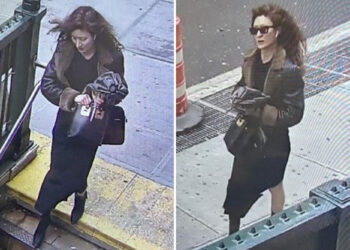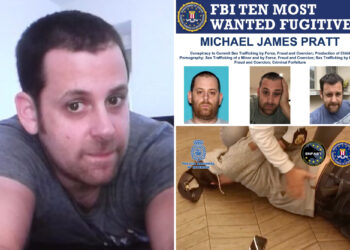
The troubled “weirdo” accused of killing his elderly parents inside their Brooklyn home was canned from his job and placed on medication before the deadly encounter, authorities said.
Meyer Sperber allegedly flew into a rage Saturday night, knifing his 75-year-old parents, Jacob and Rachel Sperber, over and over again in the family’s Borough Park apartment before “yelling in Yiddish and praying” when cops coaxed him into surrendering, NYPD Chief of Detectives Joseph Kenny said Tuesday.
It wasn’t immediately clear where Meyer Sperber had worked or what medication he was taking ahead of the shocking attack.
The unhinged son plunged a knife into his father a dozen times, hitting his lung, and stabbed his mother six times in the neck, head and thigh, Kenny said.
Neighbors heard items knocked to the ground and Rachel Sperber screaming to call Hatzolah, the Jewish volunteer EMS service, during the slaughter.
When Hatzolah arrived to the bloody scene at 1158 45th St., Meyer Sperber ran to the back of the apartment and barricaded himself in a back room for about an hour, authorities said.
His parents bled to death inside the home, Kenny told reporters.
Once he finally surrendered, the bespectacled, bearded suspect was strapped into a stretcher and led into the back of an ambulance while a crowd of neighbors looked on from the street.
He ignored a Post reporter’s questions at the scene.
Residents described the 46-year-old son as a “weirdo” with mental health problems.
“We all knew the son is weird,” neighbor Shlomo Antin told The Post.
“He was sometimes depressed, sometimes high…he was kind of [a] weirdo.”
Kenny echoed those statements to reporters at a Tuesday briefing.
“Speaking to family members, this is a mental illness. He recently was fired from his job and recently put on meds,” Kenny said.
“Talking to family members, they said he suffered from a mental illness.”
Sperber was charged this week with murder and criminal possession of a weapon.
Residents, meanwhile, said his parents were beloved members of their community, often inviting hungry people in the neighborhood inside their home for food.
“He was from a different generation,” Antin said of the father.
“There were so many people who knew him.”



























